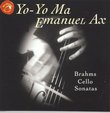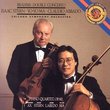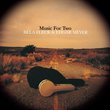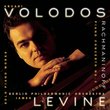| All Artists: Ludwig van Beethoven, Georg Solti, Chicago Symphony Orchestra & Chorus, Jessye Norman, Robert Schunk, Reinhild Runkel Title: Beethoven: Symphony No. 9 Members Wishing: 0 Total Copies: 1 Label: Decca Release Date: 8/15/1995 Genre: Classical Styles: Opera & Classical Vocal, Historical Periods, Classical (c.1770-1830), Symphonies Number of Discs: 1 SwapaCD Credits: 1 UPCs: 028944861723, 028944861723, 028944861723 |
Search - Ludwig van Beethoven, Georg Solti, Chicago Symphony Orchestra & Chorus :: Beethoven: Symphony No. 9
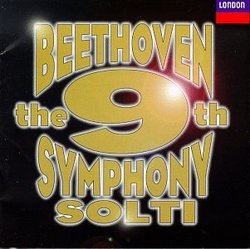 | Ludwig van Beethoven, Georg Solti, Chicago Symphony Orchestra & Chorus Beethoven: Symphony No. 9 Genre: Classical
You seldom hear an unsuccessful performance of Beethoven's Fifth Symphony these days, or a successful one of the Ninth. The straightforward energy of the Fifth is easy for contemporary musicians to handle, but the greater ... more » ![header=[] body=[This CD is available to be requested as disc only.]](/images/attributes/disc.png?v=15401716) ![header=[] body=[This CD is unavailable to be requested with the disc and back insert at this time.]](/images/attributes/greyed_disc_back.png?v=15401716) ![header=[] body=[This CD is unavailable to be requested with the disc and front insert at this time.]](/images/attributes/greyed_disc_front.png?v=15401716) ![header=[] body=[This CD is unavailable to be requested with the disc, front and back inserts at this time.]](/images/attributes/greyed_disc_front_back.png?v=15401716) |
Larger Image |
CD DetailsSynopsis
Amazon.com You seldom hear an unsuccessful performance of Beethoven's Fifth Symphony these days, or a successful one of the Ninth. The straightforward energy of the Fifth is easy for contemporary musicians to handle, but the greater mystery of the Ninth seems to make conductors uneasy. Conductors seldom attempt the mystical approach of Furtwängler these days, but sometimes a straightforward, sensible approach works out. Such is the case with this 1986 Solti recording, which doesn't court the dangers of Furtwänglerian extremes, but does work out very well on its own terms. Solti's tempos are quite moderate (his total timing is about the same as Furtwängler's), giving him time to make the music's points. Note his strong rhythmic emphasis in the first two movements, highlighted by prominent and powerful tympani. If the long Adagio isn't quite as moving as it can be, it's still convincing and it avoids sentimentality. With Solti's sense of structure, he manages to hold the finale together very well. The solo singers and magnificent chorus contribute powerfully to the total effect. This is certainly one of the better Beethoven Ninths in the catalog, recorded with brilliant clarity and warmth. --Leslie Gerber Similarly Requested CDs
|
CD ReviewsOne of the best available J. Buxton | Waltham, MA United States | 01/25/2000 (5 out of 5 stars) "This later recording of the ninth by the CSO under Solti is much preferable to his earlier version. The soloists are better(Jessye Norman is particularly good), the sound is far better, and the chorus and orchestra make great contributions. I own over 30 versions of this symphony(yes, I'm a little obsessed with it!), and I would rank this in the top five. Other versions that eclipse this one include Bernstein's final Ninth in Berlin with mixed orchestra, Gunter Wand's superb RCA version, Sinopoli with the Staatskapelle Dresden orchestra recorded on Deutsche Grammophon, and Fricsay with the Berlin Radio Symphony also on Deutsche Grammophon (only available as an import). Still, this one is quite good." Not Strict, But Truly Superb Nonetheless Dr. Christopher Coleman | HONG KONG | 10/21/2002 (5 out of 5 stars) "Sir Georg Solti, the Chicago Symphony and Chorus, and soloists Jessye Norman, Reinhild Runkel, Robert Schunk, and Hans Sotin give a spectacular performance of Beethoven's final symphonic work in this London recording from 1987. A first listening captivates with the beauty, power, and excitement of the entire work--not just the well-known finale. Repeated listenings allow concentration on the magnificent details--especially the astonishing balance the orchestra achieves in this densely scored work, so that only in a single passage (m. 486-491 of the first movement) is the challenge Beethoven creates not fully met. Otherwise the clarity of lines should be the envy of every orchestra, even in the complex double fugatos in the last movement. Although this may sound bizarre, in particular the principal bassoonist deserves recognition--Beethoven's frequent use of the bassoon to double melodic lines an octave lower is an unusual orchestrational idiosyncrasy which challenges players to contribute their tone color without being covered in that middle register, and the performer here does so without fail. Still more listenings, perhaps with score, create an appreciation of Beethoven's incredible structural command and rich harmonic language. The complexity of form in the final movement is startling in its innovation, in which the Classical sonata form outline (exposition/development/recapitulation/coda) is married with Baroque contrapuntal structures through a text Beethoven selected and edited, and its subtleties are not easily comprehended. Harmonically the entire work is a marvel, with constant shifts to the most distant relationships from the home key made not only effortlessly, but with a seeming inevitablity. The CSO, under Solti's direction, somehow manage to perform this long and complicated work on all these levels equally superbly.Solti is not, however, a strict adherent to the score in terms of tempi. The two most significant deviations from the printed tempi are the third movement and the beginning of the fourth movement. The third is marked "Adagio molto e cantabile" with a metronome marking of quarter note = 60, and later "Andante moderato" with quarter note = 63. Beethoven has created a difficult paradox between these two indications--if "very slow" is 60 beats per minute, how can "going moderately" be 63 beats per minute? The difference between the two metronome markings is barely perceivable. Solti sides with the verbal indication and ignores the metronome markings altogether--given that those markings were in fact added some time after the score had originally been presented to the publisher, this seems reasonable--and settles on an original tempo for the movement of almost half the metronome indication, that is, quarter note = 30 beats per minute. Adagio molto it is, indeed, and supremely gorgeous; in my mind Solti has made the correct artistic decision and the piece benefits greatly from it. In the fourth movement, though, Beethoven not only gives a quick metronome marking (dotted half note [i.e. one measure] = 96) but also the verbal direction "Presto". Here the music is extremely turbulent, with a famous unresolved dissonance played fortissimo (very loud). Solti's interpretation is that the complexity of harmony and line is lost at the tempo Beethoven indicates, and so he sacrifices some of the drama for clarity of line. I feel strongly that the beginning suffers as a result. For me, though, this is the only major flaw in an otherwise riveting performance. Having performed the work myself, having studied the score and listened to many different renditions, I wholeheartedly recommend this one--it is the version I selected for my father's memorial service, as he had requested that the Ode to Joy be played. For me, there can be no higher recommendation." It's terrific, even if you're not a Solti fan Ray Barnes | Surrey, British Columbia Canada | 12/31/2000 (5 out of 5 stars) "For those who consider Solti not much more than a conductor who excelled at whipping up excitement in big dramatic German pieces - such as Der Ring - it would be easy to pass over this performance. I would concede that the first movement is perhaps a little more aggressive than necessary, particularly in its coda, but in every other respect this is a magnificent performance. The difficult scherzo comes off at a very sensible pace; the slow movement has great depth of feeling and spectacular playing, and the finale, where Solti does not let himself get carried away, is truly joyous and exuberant. The soloists are distinguished and Jessye Norman in particular slam dunks the stratospheric top notes with thrilling incisiveness. The chorus is great too, as is the playing here, and the sound quality and warmth is admirable. The documentation is excellent. I would not call this either the very best or even my personal favourite (although it's in my top 5), but for those who don't mind the use of modern instruments, it earns a very strong recommendation."
|

 Track Listings (4) - Disc #1
Track Listings (4) - Disc #1